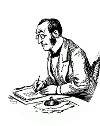Internet Search Tips: Difference between revisions
m (Larry moved page Internet Search Tip to Internet Search Tips) |
No edit summary |
||
| Line 1: | Line 1: | ||
{{Article | {{Article | ||
|Title=Internet Search Tips from Bruce Allardice | |Title=Internet Search Tips from Bruce Allardice | ||
|Article Category= | |Article Category=19CBB Digest | ||
|Is Featured=No | |Is Featured=No | ||
|Sort Order=0 | |Sort Order=0 | ||
| Line 37: | Line 37: | ||
7) Don’t assume that just because an author has penned a book on, say, Early Baseball in __ City, that the author found all the early games. | 7) Don’t assume that just because an author has penned a book on, say, Early Baseball in __ City, that the author found all the early games. | ||
-- by Bruce Allardice, September 2013 | -- by Bruce Allardice, September 2013 As of November 2013, Bruce has found 1335 new games and new clubs for the Protoball PrePro data base. | ||
Revision as of 20:18, 17 November 2013
Property "Version" (as page type) with input value "{{{Version}}}" contains invalid characters or is incomplete and therefore can cause unexpected results during a query or annotation process.
Comments
<comments voting="Plus" />
For serious research of early baseball—I can suggest a few tips that might help.
1) There’s no substitute for using and citing original sources. As seen with the Abner Doubleday myth, a secondhand story, once in print, can be endlessly repeated in other print sources even though it’s easily disproven. Use secondary sources only after you verify them with primary sources.
2) Online newspaper collections such as Genealogybank, Newspaper Archive, Chronicling America, 19th Century Newspapers, and Paper of Record are simply invaluable as primary sources. The SABR website links to several of these, plus several baseball journals. The U. of Pennsylvania has a great website that lists online newspapers by state, and includes newspaper digitalization by libraries and historical societies. For outside the U.S., online newspaper collections can be found by doing a google search for the country’s name and the words “historical” “newspapers”.
3) Online newspapers employ several different search engines, with different capabilities. Some don’t allow you to search for the phrase “base ball” but force you to search for articles containing both words. Some (Fulton County (northern New York newspapers)) don’t have a good date limit search. 19th Century isolates individual articles on a page, whereas Chronicling America just highlights (in red) the hits on the entire page.
4) In your online searches, if you’re searching for games/clubs, search for the words “base ball” up to say 1900, then “baseball” (one word) thereafter. The best practice is to do a separate search for each. If no hits, try “ball club”, “match game” or “ball game”.
5) Searching for the words “base” and “ball” will, depending on the search engine, result in dozens and dozens of meaningless hits.
6) Realize that newspaper articles are often datelined by the city, not the country. For example, I found a first game for Haiti by searching for “baseball” and “Port au Prince”, Haiti’s capital. The search using “Haiti” didn’t turn this game up. Also be aware that spellings change. In the Haiti example, the article used the old spelling of “Hayti”. Names also change. I found a first game (1906) in Iran by searching its former name, Persia.
7) Don’t assume that just because an author has penned a book on, say, Early Baseball in __ City, that the author found all the early games.
-- by Bruce Allardice, September 2013 As of November 2013, Bruce has found 1335 new games and new clubs for the Protoball PrePro data base.
